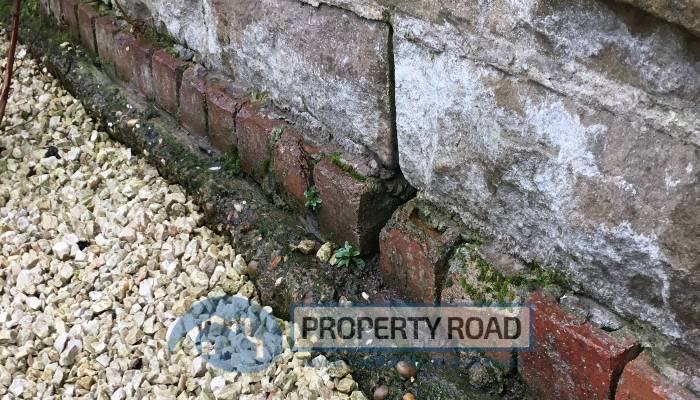So, you’ve found your dream home, and you’re eager to put in an offer, it’s easy to get carried away at this stage.
You don’t want to risk losing your perfect property, so the temptation is to pay whatever it takes to secure it. But, if you follow this guide on how to negotiate a lower price on a property, you could get your ideal house at much less than you think.
Find Out The Estimated Value Of The Property
It’ll be much easier to negotiate a cheaper price on a house if you know what the typical selling price for such a property is in the area. Look at other properties currently on the market, or use Zoopla to check previous sale prices. This will help you form a picture of whether the property you want to buy is priced fairly.
If you know the previous sale price of the property you wish to buy, you can use the Nationwide House Price Index Calculator.
This will take into account the amount house prices have changed in that area since the last sale in order to give you an estimate on the current value (assuming the condition, features, etc remain roughly the same).
If you are selling a property through an estate agent, try asking your agent if they will value the house you wish to buy. Most will because they are keen to help you complete the sale of your own property.
Once you have a fairly good idea how much the property is worth, it puts you in a much stronger position to negotiate.
Buying A Property? FREE Step-By-Step Platform
Look Out For Any Defects
When you are viewing a property, take a really close look at everything to try and spot any defects that will need addressing. When you spot them, write them down, so you don’t forget.
If you spot a more serious issue, don’t be afraid to mention it to the seller or estate agent. Pointing out an issue is giving you ammunition to put in a lower offer. You should look out for:
• Cracks in plasterwork
• Dripping taps
• Cracking grouting
• Overgrown gardens
• Damaged carpets
• Overflowing guttering.
There will be more issues so you will need to keep your eyes peeled. The problems will often be easy to fix, but they can start to mount up, giving you a good platform to negotiate a lower sale price.
When we were looking at our last house, we noticed a crack under the kitchen window and on the garden wall below. As the garden wall was supporting the weight of the kitchen extension, these two cracks could indicate subsidence.

We pointed it out to the seller as she showed us around in preparation for the negotiations. Because subsidence can be a very serious issue, we also asked her if she would agree to allow a structural engineer to look at it, which she did.
After we got back the report, we knew that the subsidence was historic and shouldn’t cause any problems anymore.
However, the structural engineer did advise we carry out some work to a retaining wall where the ground level had been lowered to the point the foundations had become exposed. The structural engineer gave us an estimate of how much it would cost to do this remedial work.

So when we put in an offer, we could use the structural engineers recommendations and cost estimate to help negotiate a lower price for our new home.
Our guide to the most common problems with auction properties will come in useful here, even if you are not buying from an auction!
Get Quotes For Any Work That Needs Doing
This is good practice anyway, but essential if you want to negotiate a lower price on a house. Put simply, if there is any major work that needs to be done, you should get a specialist in to price up the job. This type of work will include:
• Retiling the roof
• Treating damp
• Replacing rotting joists
• Replacing the windows.
If the homeowner is serious about selling, they should be happy for you to arrange for tradesmen to price up the work that needs doing. If they refuse to allow access, walk away – there’s a chance they are hiding something.
Once you know the price of the work that needs doing, you can use the quotes as a bargaining chip. Work that needs doing is one of the factors that affect the value of a house.
Remember, getting quotes for work that needs doing helps to highlight the problems to the seller, it also shows them you are serious about making an offer. This can work strongly to your advantage.

Know The Seller’s Position
It’s always a good move to be aware the seller’s position, for example:
- How long has the property been on the market?
- How many other viewings are booked in for the property?
- Have there been any previous offers on the property?
- Has the seller found somewhere to move to?
- Why are they selling?
- Do they need to move quickly?
These are all questions you should be asking the selling estate agent to get a better picture of how likely to accept a lower offer the seller is. If you know the property has been on the market a while and has yet to receive an offer, you can suggest to the agent that it may be a little overpriced and that your offer reflects that.
Equally, if the seller has already found the property they want to move to, they may be more willing to accept a lower offer, so they don’t miss out on their own dream home.
In our experience, a seller who has already found their onward property is very willing to accept a lower offer. When we bought our previous house, the seller had already put down a deposit on a new build.
This meant that she had an incentive to move as quickly as possible, otherwise she might lose her deposit. Together with the cracks we found, this gave us a very good negotiation position, and we were able to secure our new home at a very good price.
If there have been previous offers on the property, ask the agent what level they were at and use that to guide your offer price.
Evaluate Your Own Position
Your own position will dictate how attractive you are as a buyer and therefore how likely you are to be able to negotiate a lower sale price. For example, a first-time buyer will be much more attractive to a seller than a buyer who is in the middle of a long and complex chain.
Starting with the most attractive buyer, the order of preference looks something like this:
- First-time/chain-free cash buyer (most preferable)
- First-time/chain-free buyer with a mortgage
- Cash buyer with offer on own property
- Buyer with a mortgage and an offer on own property
- Cash buyer without offer on own property
- Buyer with a mortgage but without offer on own property (least preferable)
Of course, there are other factors that come into play, such as how complex your chain is, but the above order is generally true. The higher up you are on the list, the easier you’ll find it to negotiate a lower price.
If you need to sell your own property first but do not have an offer, or worse yet, your property isn’t even on the market yet, you’ll find it extremely difficult to negotiate a lower price. If you need to purchase using a mortgage, make sure you have an agreement in principle from the lender sorted before you put in an offer.
We had two interested buyers for our last home. A very nice couple, who seemed to love the house, but they didn’t even have their house on the market or a mortgage agreement in principle in place.
We liked them, so we provisionally accepted their offer with the condition that we keep the house on the market until they have received an offer on their home.
Unfortunately, they didn’t understand that they weren’t a proceedable buyer and insisted we take the house off the market. We then got an offer from another buyer, which was lower, but he already had a buyer for his house and his mortgage sorted.
So of course, we went with him, despite the lower offer. We felt bad for the couple, but at the same time, we had to look after our own interests. And make no mistake: the vast majority of sellers would have done the same.
Make sure you are proceedable, as this gives you a stronger hand in the negotiations and you can achieve a lower price.
Start With Your Lowest Price
If you have followed all the steps above, you should have a pretty good idea of what would be a fair price to pay for your chosen property. But don’t rush in yet.
Write down two prices. The lowest price you feel would be a fair offer with all of the above considered, and the highest price you would be prepared to pay. Do not deviate from these. If you cannot secure the property for your maximum price, be prepared to walk away.
However, negotiating first is almost always guaranteed to work in your favour— thanks to the first-offer effect.
You can start by offering your lowest price. By doing so, you’ve effectively used a negotiating tool to your advantage, the anchoring bias. Your lowest price serves as the ‘anchor’ that the seller uses to determine whether a deal is favourable or not (Furnham & Boo, 2011).
An offer of 5-10% under the asking price is unlikely to be deemed unreasonable. Clearly state exactly how you have come to that price, not forgetting to mention anything that you’ll need to get repaired and the cost of doing so.
If the seller is in a rush to sell, they might just accept. This is backed by research, too!
Filzmoser (2010) states that individuals would rather accept an offer rather than make a counter-offer. That is, if they think they’d get less in return. In this case, your seller may be afraid of you walking away from the deal.
However, the chances are they will negotiate up, and you’ll agree on a price somewhere between the minimum and maximum prices you wrote down.
The only exception to this is when you know there is a lot of interest in a property, or you are in a rush to buy (for example if your own buyers are losing patience). In this case, it may pay to offer slightly below your maximum price. This way you still have a little negotiation room but are still making a strong offer.

During The Negotiation
What you say and your general demeanour can influence the outcome of the negotiation (Sullivan et al., 2006). This means it can all have an effect on the overall price you’ll pay for a property.
Here are some tips on how to negotiate a lower price on a property during the offer stage:
- Make it clear how much you like the property. Telling the seller how much you love their home not only flatters them, it also shows you are a serious buyer, bumping you up the ‘attractiveness’ scale.
- Be honest about your financial position. If you’re already at your maximum budget, tell them. But don’t tell them it’s your ‘final’ offer unless you actually mean it.
- Tell them about other properties you’ve seen. If it was a tight call between this property and another, tell the seller or agent that you have a ‘back-up’ option, so they know they have competition.
- Stay calm and patient. The fastest way to pay more for a property than you need to is to rush into decisions or ‘hassle’ the agent about your offer. Stay calm and wait for them to come back to you; try not to appear like you’ll pay whatever it takes to secure the property.
- Play hard to get. Negotiating for properties can be like a game. Play it. If the seller has made a counter-offer, take your time to get back to them. Just don’t overdo it, or you risk losing the property if another buyer comes along.
- A good deal isn’t always about the purchase price. If you are struggling to negotiate the seller down on price, look at what else you might be able to get. Will they agree to replace that cracked window before the sale? Will they throw in that piece of furniture you fell in love with? Counter-offers are a normal part of any deal (Vetschera, 2013). So, don’t be afraid to ask for things during the negotiation.
Following these rules can be hard, especially if you have found your dream home. Don’t we know it! But it does pay to stick to them. When we bought our current house, which we fell in love with the moment we arrived, we did struggle with some of them.
The first few were not a problem at all, but staying patient was difficult. We knew that they were expecting another buyer for a second viewing, which did worry us. What we wanted to do was call the agent from the car on our way back home.
But we managed to restrain ourselves and wait until the next morning, as we didn’t want to come across like we would pay any price. We were lucky that we didn’t have to wait too long to hear back after we made our offer.
And even though their counter-offer was totally acceptable to us, we didn’t want to accept straight away. So we waited a painfully long 45 minutes before we rang back.
Once the price is agreed, stick to it. There’s nothing worse than a buyer who starts demanding more once the sale is well underway. Such an approach could lead to the purchase falling through.
However, there is one exception. If you have a survey conducted and that uncovers a previously unknown serious issue (such as subsidence or a lack of planning permission), you are well within your rights to reduce your offer to cover the costs of rectifying the problem.
If the survey doesn’t uncover any additional problems then you are all set to proceed, safe in the knowledge you have managed to acquire your dream property for the lowest possible price.
At this point, you can go ahead and use our tool to get fast, no-obligation quotes from up to 4 qualified conveyancers.





